Search
Did you mean: Frodi?
Search Results
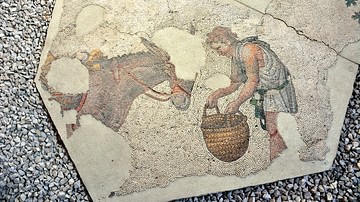
Article
Daily Life in the Byzantine Empire
Daily life in the Byzantine Empire, like almost everywhere else before or since, largely depended on one's birth and the social circumstances of one's parents. There were some opportunities for advancement based on education, the accumulation...
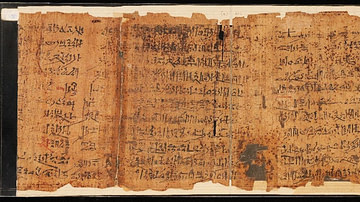
Article
The Admonitions of Ipuwer
The Admonitions of Ipuwer (also known as The Papyrus Ipuwer and The Admonitions of an Egyptian Sage) is a literary text dated to the Middle Kingdom of Egypt (2040-1782 BCE). The only extant copy of the work, preserved on the Papyrus Leiden...
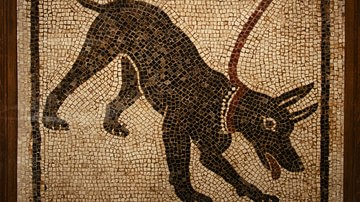
Article
Dogs in the Ancient World
Dogs have been a part of the history of human beings since before the written word. The ancient temple of Gobekli-Tepe in Turkey, dated to at least 12,000 years BCE, has provided archaeologists with evidence of domesticated dogs in the Middle...

Article
Grave Goods in Ancient Egypt
The concept of the afterlife changed in different eras of Egypt's very long history, but for the most part, it was imagined as a paradise where one lived eternally. To the Egyptians, their country was the most perfect place which had been...
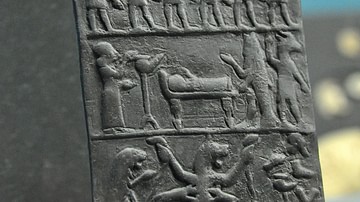
Article
Burial in Ancient Mesopotamia
Burial in ancient Mesopotamia was the practice of interring a corpse in a grave or tomb while observing certain rites, primarily to ensure the passage of the soul of the deceased to the underworld and prevent its return to haunt the living...
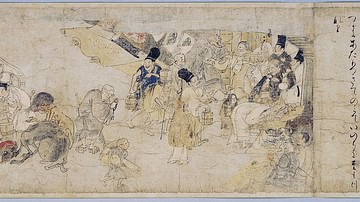
Article
Ghosts in Ancient China
Ghost stories were the earliest form of literature in ancient China. They were almost certainly part of a very old oral tradition before writing developed during the Shang Dynasty (1600-1046 BCE) and they continue to be popular in China today...

Article
The Life of Diogenes of Sinope in Diogenes Laertius
Diogenes of Sinope (c. 404-323 BCE) was a Greek Cynic philosopher best known for holding a lantern to the faces of the citizens of Athens claiming he was searching for an honest man. He was most likely a student of the philosopher Antisthenes...
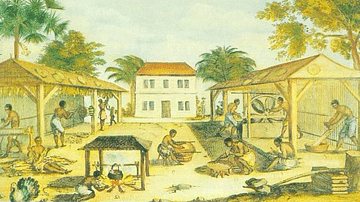
Article
African Slave Life in Colonial British America
African slave life in Colonial British America was far worse than slavery practiced in the Americas prior to the arrival of Europeans. The indigenous tribes took people as slaves in raids, enslaved those convicted of crimes, and traded slaves...

Article
The River of Separation, a Navajo Creation Story
The River of Separation is one of the many versions of the Navajo creation story detailing how the people first came up from below the earth, learned to live on its surface and, just as importantly, learned to live with each other. Versions...
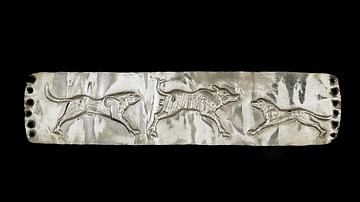
Article
Dogs in Ancient Persia
Dogs have been an integral aspect of the human condition in virtually every world culture for thousands of years. Some of the greatest civilizations of the past have kept dogs as companions, for various chores, and featured dogs in their...